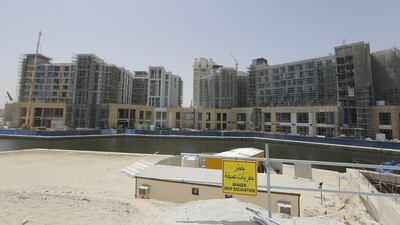Real estate and construction are regarded as global drivers of economic growth and critical sources of employment.
In western Europe, where slower economic growth and political uncertainty have squeezed transaction volumes and prices, over-weighted ownership of real estate assets is increasingly seen as a risk.
Even in the United States, where the real estate market has continued to perform well, some industry observers are wary of the sector’s long-term prospects. As a result, a significant number of real estate assets have been spun into listed vehicles that allow individual investors access to real estate portfolios without owning underlying assets.
In the UAE, real estate investment trusts (Reits) are increasingly considered an attractive prospect, pooling advantages such as investment diversification and expert investment counsel – normally available only to institutional investors – for individual investors.
Reits, if managed properly, could have the characteristics that local investors appreciate – a steady income, high yields, moderate risk and linked to property.
Despite housing some world-class residential and commercial properties, the UAE’s property market – and Dubai in particular – remains under-resourced in terms of investment grade products. Reits, therefore, could be an attractive prospect for retail investors seeking fresh UAE property opportunities.
The launch of the UAE’s first ever residential Reit, Equitativa’s The Residential Reit, a Sharia-compliant model with a seed portfolio of Dh418 million, was a welcome step for the sector. Then in March, Emirates NBD Asset Management floated a Reit listed on Nasdaq Dubai and raised US$105 million. And, last week, Abu Dhabi Financial Group announced plans to launch the UAE’s third Reit by the year’s end.
Singapore has a much bigger Reit sector. Investors tend to be attracted to Reits by their dividend yields and, according to Bloomberg, Singapore Reits offer average yields of more than 6 per cent. This suggests that, despite slower economic growth, Singapore’s yields have remained relatively strong even as returns on assets have not necessarily been.
A critical factor that accelerated the growth of Reits in Singapore was the introduction of a clear regulatory framework and government support. Reits have strong foundations, which tend to create a conducive environment, promoting their attractiveness among domestic and international investors. Singapore Reits even allow investors to own international property, further diversifying investment portfolios and reducing market contagion risks.
Several countries have expressed great interest in Reits. A number of new Reit regimes have been introduced recently, with India entering the market in 2014. For the UAE’s real estate market, Reits could represent significant growth.
Two key possible drivers – the hedging of risk and portfolio diversification – help to increase appeal for investors. For investors seeking tax-efficient, liquid and transparent vehicles, Reits might be the answer. Buying shares in a Reit makes investors a partial owner of the properties – and a partial owner of an operating business that manages properties for profit.
A further benefit of Reits may be their ability to generate higher income over the longer term. Generally, real estate prices are not correlated with stock prices, therefore, Reits provide diversification. Since Reit shares are traded on stock exchanges, buying and selling is straightforward.
The appeal of Reits is not limited to retail investors. They improve asset owners’ liquidity, broaden the investor base, facilitate equity financing and add value in the underlying real estate investment.
Dubai – and the wider UAE property market – is well placed to reap the benefits of Reits. Dubai’s real estate sector could be on the brink of a significant shift, partly driven by demand for Reits.
Sidharth Mehta is a partner and the head of building, construction and real estate at KPMG Lower Gulf.
business@thenational.ae
Follow The National's Business section on Twitter

